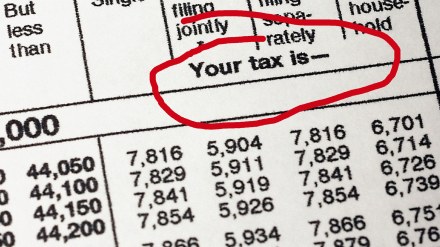Ministers are not exempt from paying federal income taxes. Since 1943 (Murdock v. Pennsylvania, 319 U.S. 105), the United States Supreme Court has ruled that the First Amendment guarantee of religious freedom is not violated by subjecting ministers to federal income tax.
For more on this topic, see chapter 1 of Richard Hammar’s annual Church & Clergy Tax Guide.
Key Takeaways:
- Ministers are subject to federal income tax on all income, including earnings from ministerial duties.
- Exemptions from tax withholding do not equate to exemption from paying taxes.
- Arguments claiming religious or legal exemptions from federal income tax have consistently been rejected by the courts.
Understanding Ministerial Income Tax Obligations
Ministers may mistakenly believe that certain exemptions from withholding mean they are exempt from paying taxes. This is not the case. One court ruling helps clarify this misunderstanding:
In Pomeroy v. Commissioner, 2003-2 USTC 50,568 (D. Nev. 2003), a federal court ruled that income received by ministers, whether from a church or private sources, is not exempt from federal income tax. The court noted:
- Ministers’ income, even from religious activities, must be included in gross income for tax purposes.
- The exemption from income tax withholding does not mean exemption from the obligation to pay income taxes.
- A church’s tax-exempt status does not extend to the personal income of its ministers.
Common Frivolous Tax Arguments
Despite clear legal precedent, some tax protestors use religion or flawed legal interpretations to attempt to avoid paying taxes. The IRS and courts have consistently rejected these arguments, including:
- The claim that the Sixteenth Amendment is invalid.
- The idea that placing assets in offshore accounts or trusts eliminates tax liability.
- The argument that filing a tax return is voluntary.
- The assertion that Federal Reserve notes are not taxable income.
Congress has enacted penalties to discourage these arguments, including a $5,000 penalty for frivolous tax positions and a $25,000 penalty for maintaining frivolous arguments in Tax Court (IRC 6702, 6673).
The Corporation Sole Scam
One common tax scam involves promoting the use of “corporations sole” by churches and individuals to evade taxes. Promoters claim that structuring a church or individual as a corporation sole exempts them from tax and government regulation. These claims are false. Consider the following:
- Only the presiding officer of a religious organization can form a corporation sole, not the church itself.
- Corporation sole statutes clarify that these entities are subject to all government laws and regulations.
- Incorporating as a corporation sole does not exempt a church from its obligations, such as withholding taxes, issuing W-2s, or filing IRS forms.
Example: Oregon’s corporation sole statute specifies that such entities are managed by a single director and have no board of directors, but this does not exempt them from tax compliance.
The IRS has issued warnings about the misuse of corporations sole (see Revenue Ruling 2004-27). Courts have consistently deemed arguments for tax exemption based on corporations sole as frivolous and imposed penalties on promoters and participants.
Ministers and Church Leaders: Stay Compliant
Ministers and church leaders should be cautious about tax scams and seek guidance from qualified professionals. Ensuring compliance with federal income tax laws protects both individual ministers and the church community from penalties and legal issues.
FAQs
- Are ministers exempt from federal income taxes?
No, ministers are required to pay federal income taxes on all income, including earnings from ministerial duties. - Does tax withholding exemption mean no taxes are due?
No, exemption from withholding does not equate to exemption from paying taxes. - What is a corporation sole?
A corporation sole is a legal entity for religious leaders but does not exempt them or their church from tax obligations. - What should ministers do if they are unsure about tax compliance?
Consult a CPA or tax attorney for guidance on meeting federal tax requirements.





